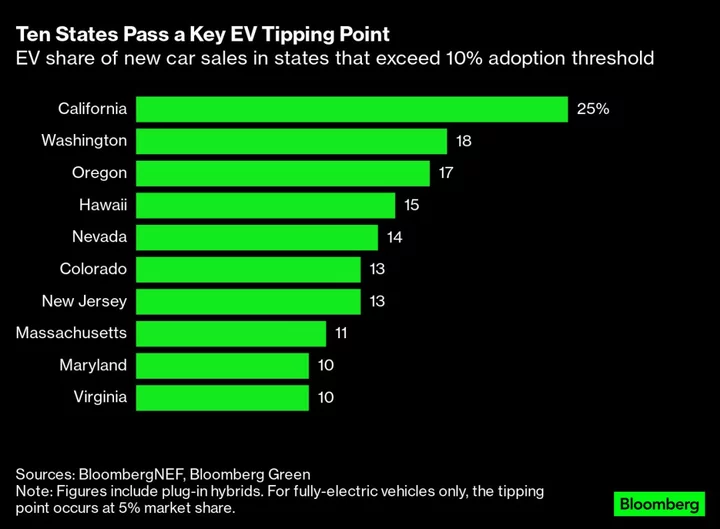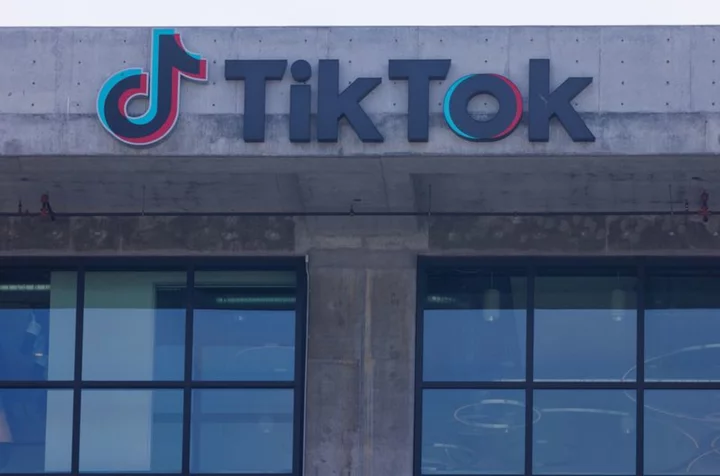When Tesla Inc. hands over the first of its Cybertruck electric pickups to customers on Nov. 30, it will embark on one of its toughest challenges yet: overcoming America’s partisan divide over electric vehicles.
EV ownership is deeply tied to voting behavior in the US, according to a report by BloombegNEF. For every 10 percentage-point increase in Joe Biden’s share of votes in the 2020 election, the concentration of EVs was roughly 50% higher. The partisan rift goes well beyond preferences linked to income, urban density or the current rate of truck ownership.
As the US wades into a bitter presidential election year, EV partisanship has only increased. The national Republican Party wants to repeal EV incentives passed under Biden, and presidential candidate Donald Trump claimed without evidence that EVs will all be made in China, destroying the US auto industry.
Bill Ford, the executive chair of Ford Motor Co., likened the polarization to what happened with vaccines since the pandemic. “I never thought I would see the day when our products were so heavily politicized,” Ford said in an interview last week with the New York Times.
Ford and General Motors Co. recently pushed back their timelines on electrifying trucks following a disappointing reception from their first attempts. Ford is shifting its focus to hybrids, which use smaller batteries powered by gasoline engines.
Including plug-in hybrids, the US is on track this year to cross a critical threshold of 10% of new vehicles being electric, the point when widespread adoption typically occurs, according to a Bloomberg Green analysis of EV tipping points. So far 10 states have passed that milestone — and none of them lean Republican.
In the middle of it all sits Elon Musk, who built an unrivaled fortune selling EVs to green-minded early adopters before engaging with right-wing politics in the US. Hoping to flip the script on EV ownership with the Cybertruck, Musk moved Tesla’s headquarters from California to Texas and started wearing cowboy hats in public appearances.
Tesla, which is responsible for about 60% of EVs ever sold in the US, aims to reach a production rate of 250,000 Cybertrucks a year at some point in 2025. That’s six times more than all the electric pickups sold until now. Whether Musk’s outreach to Republicans results in the Cybertruck being embraced by both sides of the political spectrum, or by neither, could shape the pace of EV adoption for years to come.
Read more:
- Tesla's Year of Price Cuts Exposes Crisis for Legacy Auto
- US Electric Vehicle Sales Reach Breakthrough Pace
- California Shows an EV Uprising Headed for the US
- Tesla Owners Have Soured on Musk — But Not His Cars
- Bill Ford Says EVs Are Being Politicized Like Vaccines
- Tesla Calls for Tougher Fuel Rules Opposed by Rivals









